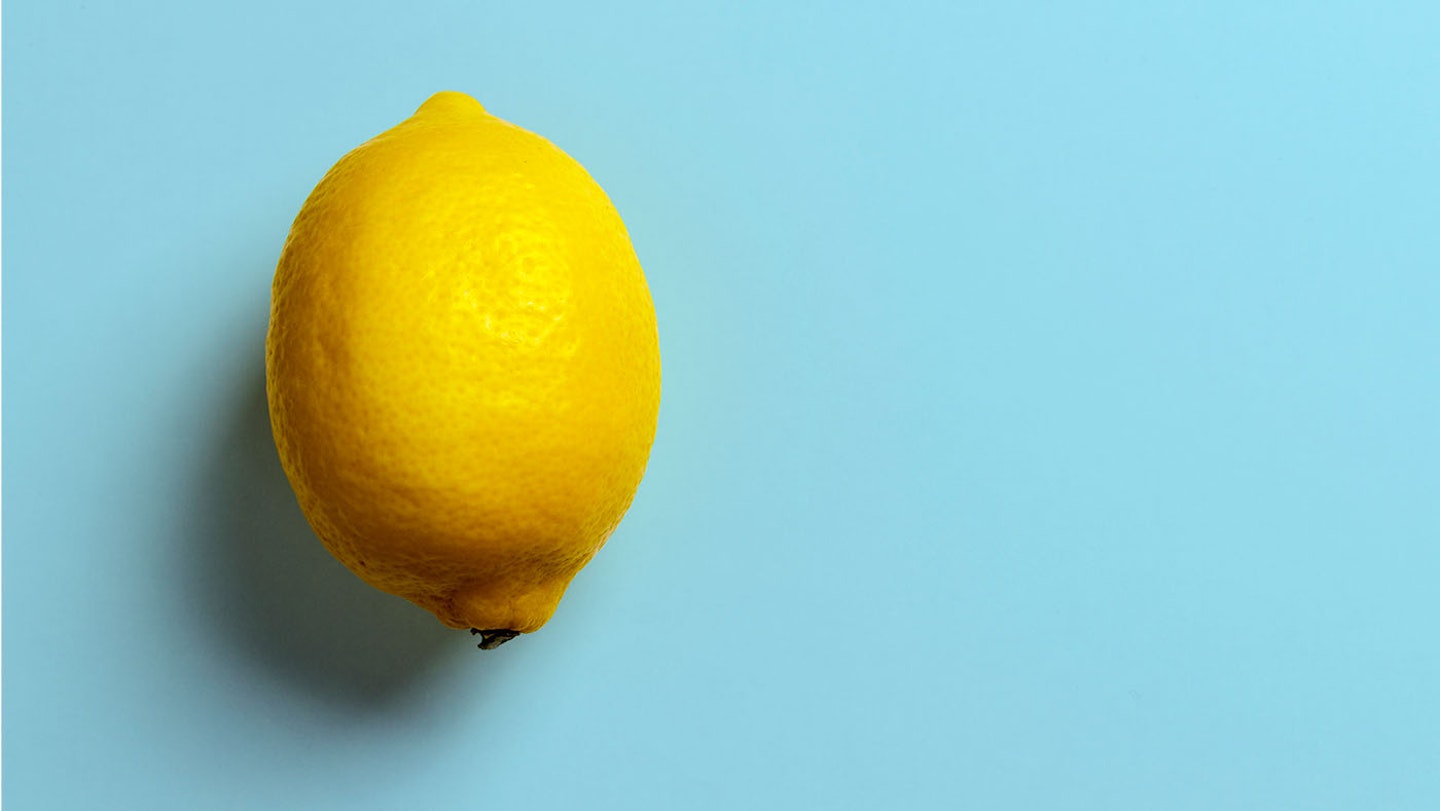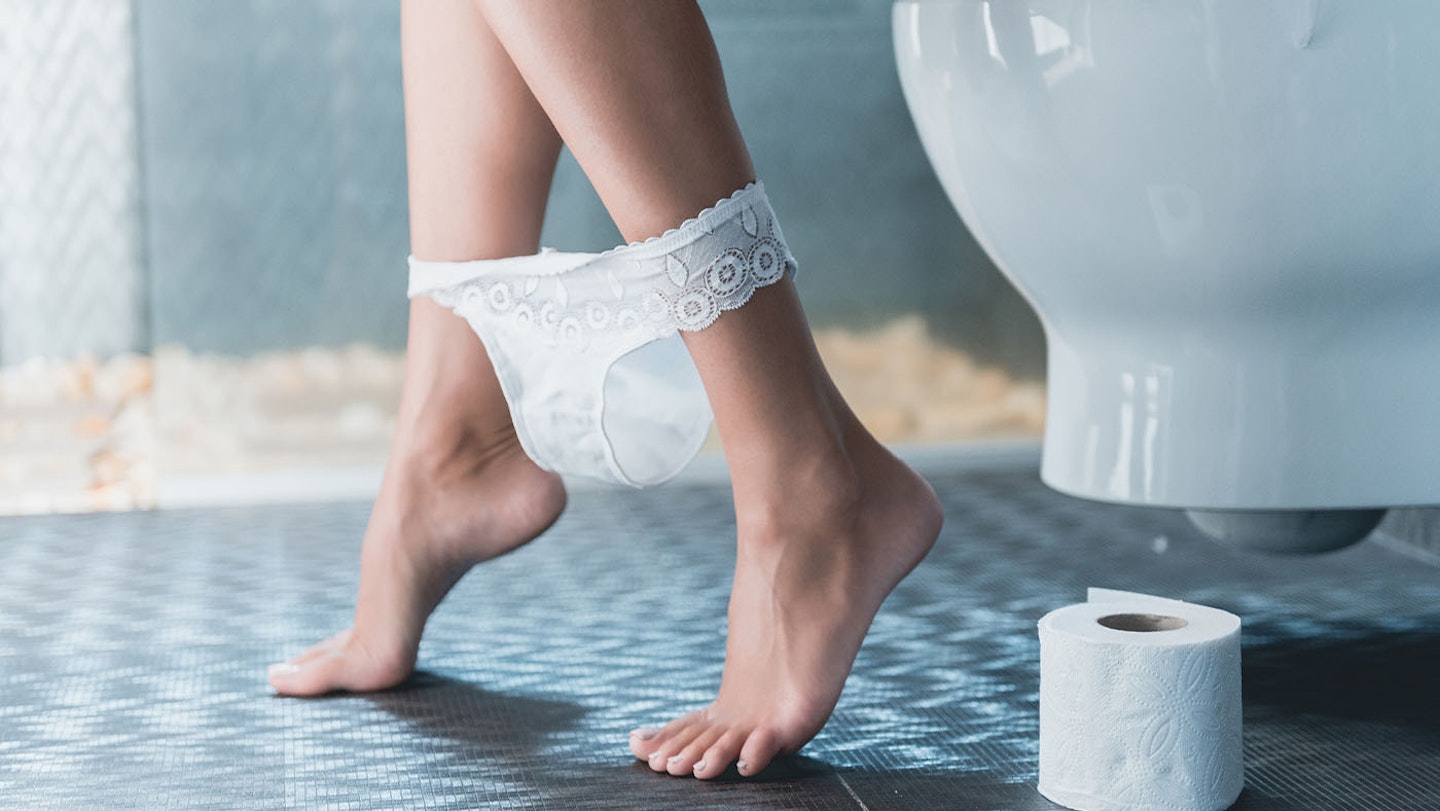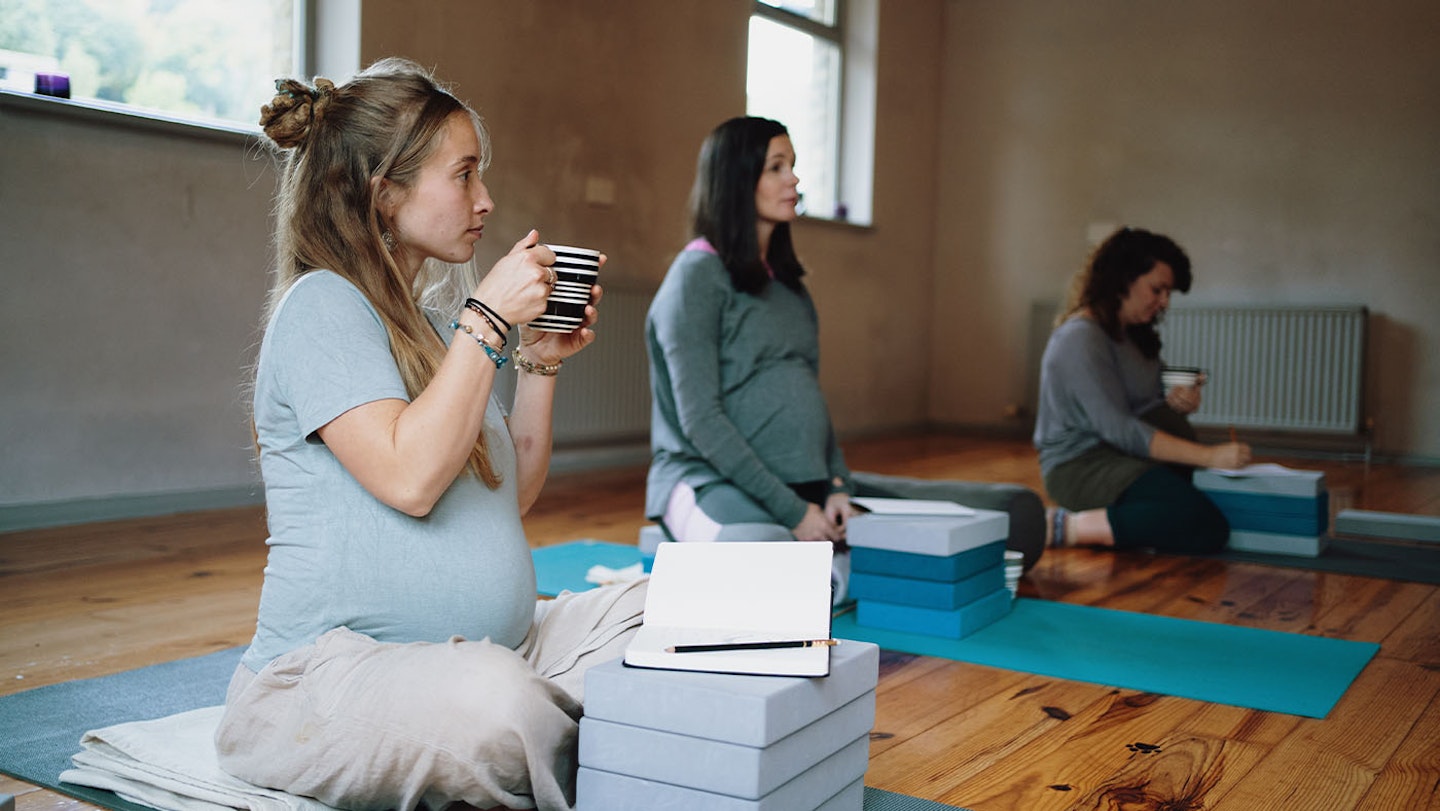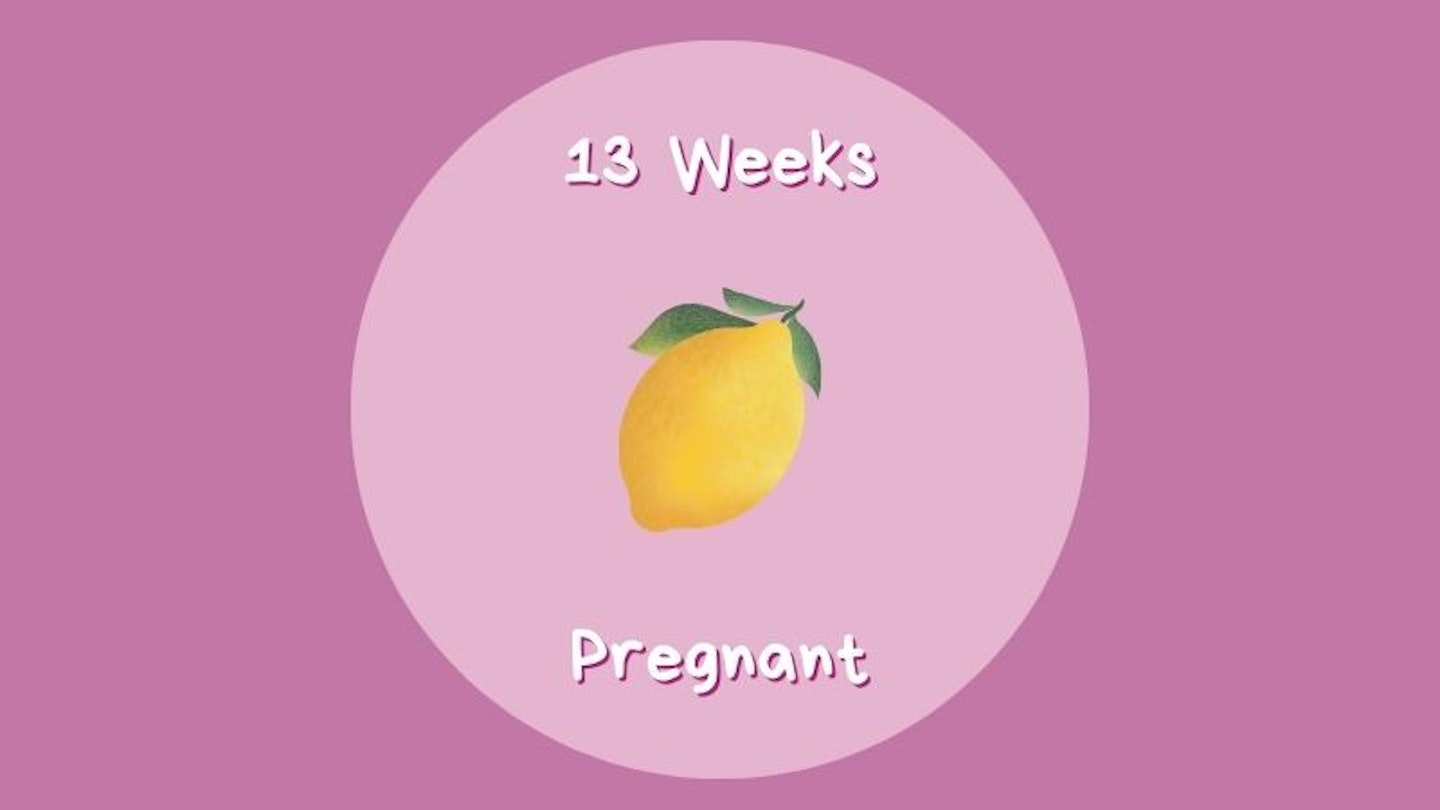
Medically Reviewed by: Dr Ayanthi Gunasekera
Congratulations on reaching 13 weeks of pregnancy! Things are starting to feel more real now, and you might have shared the exciting news with more people. If you haven't yet, you may be getting ready to announce your pregnancy when the time feels right. Here’s what to expect during week 13 of your pregnancy, including what's happening with your baby, your body, and the symptoms you might experience.
How many months is 13 weeks pregnant?
At 13 weeks pregnant you're in the third month of your pregnancy and have reached the final week of your first trimester. Those early, unpleasant first 90-day symptoms should begin to subside soon. Just 6 months to go!
Baby development at 13 weeks pregnant
At week 13, your baby has a lot going on, according to Dr Ayanthi, "Your baby is becoming more active, moving around and even making tiny movements like sucking their thumb. They are also forming vocal cords, and their intestines are moving from the umbilical cord into their abdomen."
Here's a list of tthe different ways your baby is developing at 13 weeks...
They're growing their body
An ultrasound at 13 weeks pregnant would show that your baby’s head still makes up about half the size of their body, but don't worry, the body will soon catch up with the head. During week 13, your little one will start developing bones in their arms and legs. The intestines, which up until now have been growing inside the umbilical cord, will now move to their permanent position in your baby’s abdomen. This week the placenta is also growing, and getting ready to feed and nourish your foetus for the next few months. Your baby will also now start developing his or her reproductive organs, ready for you to find out the gender if you want to at your 20 week scan.
Their eyes are still closed
Although their eyes are there, your baby's eyelids are still fused shut to protect the eyes for the next few months while they still continue to develop.
They're finding their voice
Another cute development this week – your little one’s vocal cords, something we’re sure they’ll use frequently once they're born!
How big is my baby at 13 weeks?
Your baby has grown to about 7 cm long or the size of a lemon. The size of their head is much larger than their body at this point, but don't worry, the pace in which babies grow around this time varies so try not to compare yourself to other mums who might already be showing at 13 weeks.

13 weeks pregnant symptoms
While some familiar pregnancy symptoms might be sticking around this week, there could be some new ones you'll notice this week. "As for changes to your body, you might start to notice a decrease in nausea and fatigue as you enter the second trimester," says Dr Ayanthi.
Here are some more of the pregnancy symptoms you might be experiencing now that you're 13 weeks along...
Changes in vaginal discharge
Otherwise known as leukorrhea, this thin, milky, mild-smelling or odourless discharge is another perfectly normal 13 week pregnancy symptom, caused by the production of oestrogen during pregnancy. Its job is to protect the birth canal from infection and keep it healthy during pregnancy, so don’t worry about using special wet wipes to clean it away. The downside is it can cause a mess of your favourite underwear, so wear a thin panty liner around this time.

Increased energy
At last! Now the placenta is taking over, you should feel like you’ve got a bit more of a spring in your step. Consider using this energy and adding some pregnancy exercise to your routine, but don’t go mad!
Increased sex-drive
As your second-trimester approaches, you might find a boost in your sex drive during pregnancy! However, if you’ve got a history of early labour or miscarriage, it’s worth checking with your doctor beforehand.
Visible veins
You might not like them, but these are super important during pregnancy and are a sign of increased blood supply to your growing baby. You may also notice changes in your skin texture and appearance such as slightly darkened patches of skin or even acne.
Cravings
Food cravings tend to emerge at the end of the first trimester so you might notice some unusual food cravings around week 13 of your pregnancy. Gerkins perhaps? With ice cream? We've all heard of the unusual pregnancy cravings mums experience so don't worry, it's all perfectly normal. Just avoid any foods you can't eat when pregnant.
Heartburn
Heartburn in pregnancy is very common and probably won’t ease up any time soon. During pregnancy the muscle at the top of the stomach relaxes, which allows digestive acid to rise and cause that familiar burning in the chest. Stay away from spicy or fatty foods and keep those antacids handy!
Constipation
We’ve mentioned this before, but during pregnancy, those all-important hormones create some unwanted side effects, and pregnancy constipation is one of them! Your bowel muscles relax, meaning they are less effective at moving things along, which can leave you feeling pretty uncomfortable. Our top tips? Add some high-fibre snacks to your diet – fruit, vegetables and whole grains are good options.
Cramps
The second trimester also marks a change in blood circulation and increased pressure on your legs from extra weight. So at 13 weeks pregnant, cramps in your legs may be something to add to your list of pregnancy symptoms. Luckily, there are plenty of things you can do to ease pregnancy leg cramps.
Abdominal Pain
At 13 weeks pregnant, you might have noticed some abdominal pain. As your belly expands, those stretching muscles are likely to cause some pain on the sides of your belly, particularly after changing positions, and it may move to the groin or hip. This is round ligament pain and can also be thought of as growing pains. While it's normally nothing to worry about, the NHS advises that any serious stomach pains should be checked out by your GP or midwife.
Back Pain
Back pain at 13 weeks pregnant is also very common, and again, it's caused by all the stretching your ligaments are doing to make room for your growing baby. As they stretch and soften, there's greater pressure on your joints, particularly in the lower back.
Your body at 13 weeks pregnant
It's normal to see and feel a lot of changes to your body in week 13 from easing up of symptoms to the first signs of a little bump. According to Dr Ayanthi, "Your uterus continues to grow, and you may begin to show a noticeable baby bump. You might also experience changes in your skin, such as the appearance of the pregnancy 'glow'."

Here are some of the things you might like to know about your body at 13 weeks pregnant...
Symptoms start to ease
As you reach your second trimester, symptoms such as morning sickness and exhaustion should begin to ease up. Don't worry if you're still feeling the symptoms into week 14 of pregnancy as some women find the fatigue and sometimes sickness can linger into months four and five.
Placenta is fully developed
By now, your placenta will be fully developed but will continue to grow in size throughout your pregnancy. Your baby is connected to it via the umbilical cord, through which your baby gets enough oxygen and nutrients. Yet the placenta also has an important role in getting rid of waste products such as carbon dioxide and producing many of the important hormones needed for your baby’s development. It might not be very pretty to look at (don’t Google image it if you’re still feeling delicate) but it does a truly amazing job for your baby.
Your bump at 13 weeks pregnant
This week, you might see the first signs of that baby bump – it usually shows up between 12 and 16 weeks, but this completely depends on your body and your baby. The chances of having a small bump are because of where your baby is located at 13 weeks - your womb is starting to grow upwards and outwards, which is good news if you've been having to pee more often as it should be moving away from your bladder.
A showing bump can be one of the biggest pregnancy excitements and you can now get ready to announce you’re expecting or even go shop for maternity clothes.
Looking after yourself at 13 weeks pregnant
As your pregnancy develops into the second trimester, there are a few things you might want to consider this week.

Continue taking your prenatal vitamins
Dr Ayanthi recommends you don't skip your pregnancy vitamins and supplements to maintain a healthy pregnancy. Vitamins D and C as well as Folic Acid are particularly important to support your pregnancy.
Ensure you're eating a pregnancy safe diet
It's never been more important to eat a healthy diet while pregnant to make sure you and your baby are getting those all important nutrients. You should also get to know what foods are not safe in pregnancy and keep this in mind when doing the food shop or eating out at restaurants. Also make sure you're staying hydrated and maintaining a moderately active lifestyle.
Scans and appointments at 13 weeks pregnant
Attend all your check ups
You should by now have had your first midwife appointment and may have had your 12 week scan. It's important you attend all your scheduled pregnancy appointments to ensure your pregnancy is developing as it should. Keep your maternity notes safe and stay organised by putting all appointments in your diary.
Consider what antenatal classes are available
Now is a great time to research the antenatal classes available in your area and speak with your GP or midwife to find out more about the classes they recommend. They'll help you learn more about your health in pregnancy, what to expect from labour and birth, labour pain relief options, relaxation techniques, birthing tools, help on feeding and caring for your baby, self-care after birth and more.
Other things to consider at 13 weeks pregnant
Could you be having twins?
If you find you’ve been showing for weeks and you’re already bursting out all of your clothes, it might be worth double-checking if you're pregnant with twins. If your first ultrasound has confirmed there’s only one little bun in the oven, don't worry, this could mean your due date isn’t quite right and you’re further along than you thought or that you’re experiencing pregnancy bloating - another symptom that can surface around 13 weeks.
Tell work about your pregnancy
If you haven't already, now may be a good time to tell your work about your pregnancy. A lot of women usually leave this until their first scan at 12 weeks pregnant. Make sure you know your maternity rights once you've told them.
Start some pelvic floor exercises
Now is a good time to start toning and tightening your pelvic floor with some pelvic floor exercises which help prevent you leaking when you laugh, sneeze or cough. As the NCT notes, "it is quite common to leak wee when coughing, sneezing or straining during pregnancy if you have weak pelvic floor muscles." Getting into the habit of doing your pelvic floor exercises regularly can help you reduce or avoid having this issue.
13 weeks pregnant risk of miscarriage
We know it's not something women want to think about, but this can be a worry early on in your pregnancy. According to Tommy's the general UK miscarriage statistics state that "Most miscarriages happen in the first 12 weeks of pregnancy", so you're just past the main danger zone.
They also say "It is estimated that early miscarriages happen to 10-20 in 100 (10 to 20%) of pregnancies", and that most miscarriages are a ‘one-off’, so if you've had one before, don't worry – there is a good chance of having a successful pregnancy this time around.
About the expert
Dr Ayanthi Gunasekera is a senior obstetrics and gynaecology (O&G) trainee (ST7) in North and East London at Barnet and Chase farm Hospitals NHS Trust. She has a keen interest in medical education and has a PG certificate in Medical Education.
Ayanthi has written patient information leaflets and guidelines and joins the London Gynaecology team as Medical Information Lead. In her spare time, she enjoys painting, gardening, knitting and crafting with her two young children.
About the author
Emily Gilbert is the Features & Reviews Editor for Mother&Baby and has written for the website and previously the magazine for seven years. Emily writes about everything from the top baby products to pregnancy, fertility and maternal mental health. Specialising in product reviews, Emily is the first to know about all the exciting new releases in the parenting industry.
